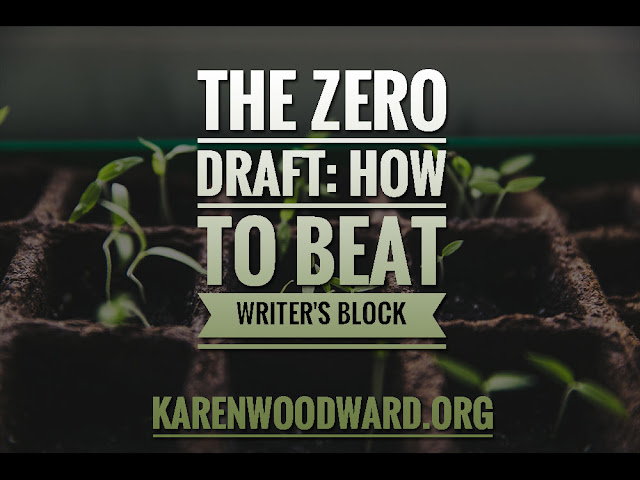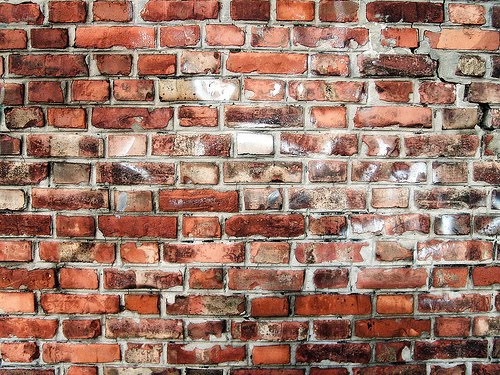Have you ever had writer’s block? I have. After my dad passed away the words wouldn’t come. It took me months to start writing fiction again. But, that’s not the kind of writer’s block I’m talking about.
All my life, when I’ve sat down to write fiction, a mean little munchkin would stir to life inside me. “You can’t write,” he’d say. “Look at that sentence. So amateur hour. Face it, no one is going to want to read this drek. You’re wasting your time. Your life. No one but me has the balls to tell you this but, girl, you’re never going to get anywhere as a writer. Given your limited skills, it’s just not possible.”
When a writer has the munchkin’s top 40 looping through their mind it’s no wonder she becomes paralyzed. The ideas flee.
SO MANY TIMES I would stick at it for a while, perhaps hours, but my writing session would consist of scribbling a few sentences, thinking, “That’s so bad it’s embarrassing!” then I’d delete what I’d just written or—as we’ve seen in so many movies—crumple up the piece of paper I was writing on and throw it in the general direction of the waste paper bin.
But there is a solution: give yourself permission to write complete and utter drek. That’s what a zero draft is. Remember, this is only a draft, not the final product. The final draft will not be complete and utter drek and here’s why: You have several drafts to make your story better and, if you’re so inclined, you can ask readers you trust to read a draft of your story and give feedback. Finally, when your manuscript is as presentable as possible you send it off to the best editor you can afford and receive their feedback.
That was a rather long lead-in! Whew. In what follows I take a closer look at what a zero draft is and why it’s a good thing, then I talk about my own writing process and the tortured path I take from zero draft to first draft.
What a zero draft is and why it’s a good thing.
I first heard the phrase “zero draft” in 2012. I know because I blogged about it! That said, the way I think about a zero draft has changed over the years. These days I tend to think of a zero draft as a vomit draft. Sound gross? It’s supposed to!
The idea behind the zero draft is that it doesn’t count as writing. It’s a mind-dump, it’s scribbling. You’re never going to show the vomit draft to anyone and, when it has served it’s purpose, you can ceremoniously burn it!
The zero draft is amazingly useful because it will help you write your first draft. The first draft isn’t going to be perfect, but it probably won’t be completely cringeworthy.
I’ve been using zero drafts for a few years now and it has definitely boosted my actual output. The key, I think, is that after awhile (* knock on wood *) one begins to accept that what you write (or type) doesn’t have to be perfect. This isn’t your final draft, it’s just the beginning. But it gives you a beginning! If you don’t have words down on paper there’s nothing to polish.
Okay. So. That’s a zero draft. What follows is an idealized version of my own process. I want to stress that (think of me jumping up and down waving a neon sign with this on it:) this is just what I do. Each writer has a different process and, often, one’s process differs from story to story.
An idealized version of what I do—or try to do (* knock on wood *).
a. Write a zero draft.
This doesn’t even have to be prose. Sometimes it might be more of an outline, or various loosely connected ideas. Just get words down on paper.
b. Take a break.
When the zero draft is more-or-less complete (remember the 80/20 principle) I take a shortish break. I’ll get a coffee, go for a walk, do some gardening, whatever. It may sound odd, but I need to get out of the office and away from words.
c. Read your zero draft all the way through.
I try to set aside a chunk of time so I can re-read my zero draft—the whole thing, all the way through—in one sitting. While I’m reading I take notes about what needs to be changed, about what could be added, but try not to edit the document until I’ve finished reading it through. I find that I’m much more productive when I do things this way because a lot of material in the zero draft will be cut since I don’t yet know the overall structure of the story (goals will change, and so on). Which brings us to ...
d. Think about the overall structure of the story.
Ask yourself: Who is the protagonist? What does she want? What person or force opposes her? What genre is this? Does what the protagonist wants, her goal, her need, fit into the genre I want to write in? And so on. I’m not going to go over this in great and gory detail here since I’ve done that elsewhere:
e. Fill in plot holes, characterization, etc.
After I have the general shape of the story I’ll start to see where the plot holes are as well as which characters are too much like each other, where I'm missing a character, and so on. Part of the beauty of outlining is that I can make major changes to the story and not have to go through the excruciatingly painful process of throwing out thousands of words.
d. Write the first draft.
I’m going to stop there. If you would like to read more about how I see the writing/editing process from first draft to final draft see: 11 Steps To Edit Your Manuscript. Edit Ruthlessly & Kill Your Darlings.
I’ve drawn from my own experience in this article, but we’re all different. If your process works for you that’s the only thing that matters.
So please share! I’d love to know what your process is.
I’ll talk to you again on Monday. Have a great weekend and good writing!
If I could recommend only one book on writing it would be On Writing by Stephen King. Part autobiography, part creative writing advice, this book helped me improve my writing in concrete, measurable, ways. If you only read one book on writing in your life, let it be this book! The link to On Writing is an affiliate link—as are many of the links on my blog—but I only link to books and programs I deeply believe in. Clicking the link won't cost you any money but I will get a small percentage of anything you buy on Amazon.com for the next 24 hours. Thank you!








